British Celebrities Make A Pledge to Disclose Social Media Ads Online
Sixteen British celebrities, including Rita Ora, Rosie Huntington-Whiteley, Alexa Chung and Ellie Goulding, have pledged to change the way they label social media posts after the UK’s competition authority crack down on the practice of influencers being paid for endorsing products without proper disclosure.
This morning, The Competition and Markets Authority (CMA) said it had secured formal commitments from 16 celebrities to state clearly if they have been paid or received any gifts or loans of products that they endorse. The pledge comes after an investigation from the Competition and Markets Authority (CMA) amid concerns that certain influencers were not clearly disclosing when they had been paid or incentivised to promote goods or services.
According to the CMA the term ‘influencer’ refers to bloggers, vloggers, celebrities and social media personalities. The CMA has also published a compliance summary for influencers to ensure that they are aware of consumer protection law.
The new guidelines will be of particular importance to the fashion industry (including brands, marketing agents, intermediaries and all involved in the supply chain). As the fashion industry often makes use of influencer marketing. Online endorsements from celebrities and influencers can help brands boost sales, as millions of fans follow their social media channels to see where they go on holiday, what they wear, which products they use and more. However, where such stars are paid or rewarded to promote a product in their social media feeds, consumer protection law requires them to disclose that they’ve been paid or incentivised to endorse a brand. Otherwise, they risk giving a misleading impression that a post represents their personal view about a product or service.
In the UK, for example a recent report discovered that 60 percent of Instagrammers learn about products and services on the platform and one in four people in the UK have discovered and bought products that they found on Instagram.
Andrea Coscelli, chief executive of the CMA, said: “Influencers can have a huge impact on what their fans decide to buy. People could, quite rightly, feel misled if what they thought was a recommendation from someone they admired turns out to be a marketing ploy.
“You should be able to tell as soon as you look at a post if there is some form of payment or reward involved, so you can decide whether something is really worth spending your hard-earned money on.
The enforcement action taken by the CMA has seen a number of social media stars pledge to be more transparent when posting online. It also sends a clear message to all influencers, brands and businesses that they must be open and clear with their followers,” says Coscelli.
The influential celebrities, named by the CMA who have acted in response to the CMA’s concerns, include singers Ellie Goulding and Rita Ora, models Alexa Chung, Rosie Huntington-Whiteley, and Iskra Lawrence. Former Coronation Street and Our Girl actress Michelle Keegan and TV reality stars Millie Mackintosh and Megan McKenna. The Only Way Is Essex stars Mario Falcone and Chloe Sims, and Fashion bloggers Dina Torkia and James Chapman. Warning letters have also been sent to a number of other celebrities, urging them to review their practices where some concerns have been identified.
According to the new consumer protection law compliance guidelines issued by the CMA for influencers when endorsing products, brands or services on social media.
Practices which do not go far enough to comply with the legal requirements, include:
tagging a brand or business in either the text, picture and/or video of a post without additional disclosure
tagging a gift from a brand in in either the text, picture and/or video of a post without additional disclosure
using discount codes in a post without additional disclosure
using ambiguous language without additional disclosure in a post (for example ‘thank you’; ‘made possible by’; ‘in collaboration with’; or ‘thanks to…’)
unclear use of hashtags, for example:
using #sp; #spon; #client; #collab; etc.
adding #ad directly after the name of the brand or business (for example #[BRANDNAME]ad)
when the disclosure (for example #ad, #advert) is not prominent because it is hidden at the end of or among other text and/or hashtags
product placement where there is an associated (and undisclosed) payment or other incentive
disclosing the a commercial affiliation only on an influencer’s front, home or profile page
Influencers found to be in breach of consumer protection law could face legal enforcement action from the CMA, local authority Trading Standards services.

